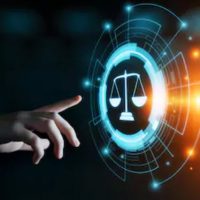Exhausted by Identity Theft? Learn How To Report It

Proving identity theft claims is an uphill battle
No doubt being the victim of identity theft is a terrifying and exhausting experience, but what most consumers don’t understand is that the deck is stacked against them. You could be the victim of a hack or a loved one has used your social security number and information to open up accounts in your name, but getting that mess cleared up is far more difficult than most people appreciate. The reasons are rather simple, but that does not mean that they are legal or in compliance with the Fair Credit Reporting Act (FCRA).
The system is built to frustrate consumers, credit reporting agencies and banks
The FCRA holds both the credit reporting agencies (CRAs: Experian, Trans Union and Equifax) responsible as well as the furnishers (the credit card companies, banks or utilities that are reporting the fraudulent account) to conduct a reasonable investigation. At the conclusion of that reasonable investigation if they cannot verify that you actually opened the account, they are required to delete the identity theft account. Almost all disputed accounts are difficult to verify without extensive investigation and fact finding. Obviously, the CRAs and the furnishers do not want to invest that sort of time and effort to actually investigate and verify if the consumer opened the account. But alas, the courts have held that if the furnisher cannot verify the debt or would need to invest too much time and resources to conduct a proper investigation, it can just end the investigation and delete the trade line. Thus, there is no requirement that they conduct a full and complete investigation if they choose to throw in the towel and delete the account. Thus, they only have to conduct a full investigation if they want to continue to report the account as accurate and verifiable. The problem is (of course) that they don’t want to delete the account information because when they do they lose that leverage to force payment/collection.
False claims of identity theft could be just as common as real claims
Let’s add another even bigger issue: false claims of identity theft. While there are no statistics on how many claims of identity theft are actually false claims related to valid debts, experts have opined that the number could be as high as 50% or as low as 20%. In any event, few will dispute that there are plenty of people who will try to erase a legitimate debt, by claiming that they are the victim of identity theft. However, it is the burden on the furnishers and CRAs to sort out who is legitimate and who is not, and if they are uncertain, they have to delete the trade line information.
Virtual online transactions make verification proof difficult to produce
In this world of electronic applications where there are no face-to-face meetings or verifications of identification, there are millions of accounts being opened on-line over the internet with no proof of who is on the other end of the computer. How can they ever be verified? Defense lawyers that are being honest know the answer is that they never can.
These furnishers know the truth and know the answer, but as one large utility company employee explained to us: if the word ever got out that we delete all the disputed accounts that we cannot verify, we would be inundated with false claims of identity theft and have to delete all the negative accounts.
You can get help to resolve your identity theft cases. Call an identity theft lawyer today
So, what do these furnishers and CRAs do? They train their people to verify almost all claims of identity theft and hope that consumers get tired of banging their heads against the wall
with no success. No doubt it is frustrating and seems like a hopeless mission. But before you get discouraged and give up, contact a lawyer that specializes in these sorts of cases. Blankingship & Christiano concentrates almost all of its practice on FCRA cases and helping consumers not only correct fraudulent accounts but hold furnishers and CRAs accountable for their unlawful practices and procedures. You may never get it corrected on your own, but if you hire the right lawyer, you not only can get the fraudulent accounts deleted, but you can recover significant monetary damages for the loss of credit, frustration, mental distress, and other damages that you have suffered along the way. Don’t give up, just change tactics, and get a qualified lawyer on your side. Blankingship & Christiano takes these cases on a contingency fee basis, so you do not have to pay anything up front to get the help you need.
If you have an error on your credit report and need legal help getting it corrected contact the Virginia Credit report error lawyers at Blankingship & Christiano, P.C. (571) 207-8331 or fill out our contact form to discuss your case

